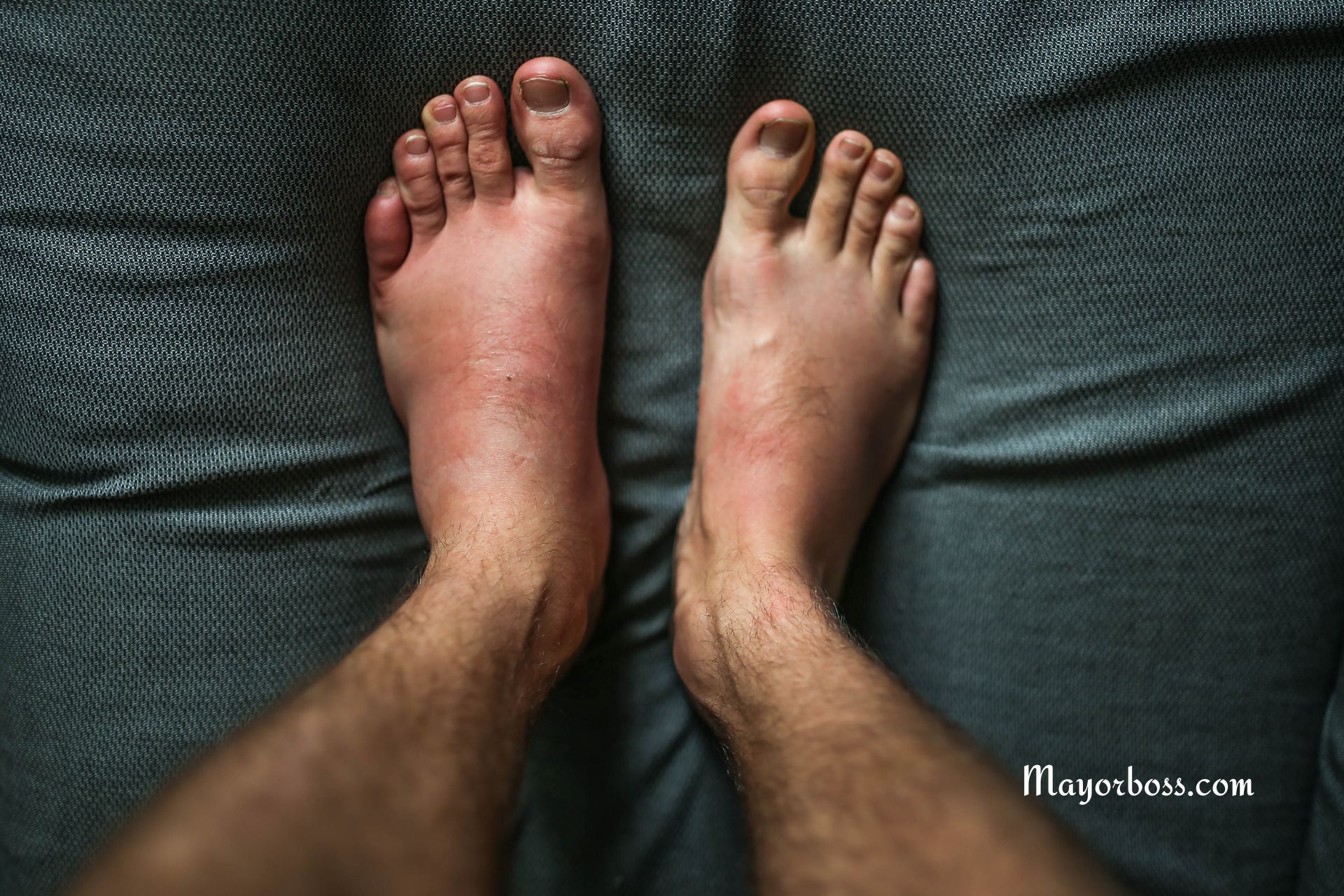7 Alarming Warning Signs of Swollen Feet You Should Never Ignore
Swollen feet might seem like just a small problem, especially after standing all day or taking a long flight. But sometimes, swelling can mean something more serious. Knowing when to worry and when to see a doctor is really important for your health. Here are seven warning signs of swollen feet that you should never ignore.

1. Swollen Feet with Shortness of Breath
Swollen feet, along with shortness of breath, are signs you shouldn’t ignore. This could be a sign of congestive heart failure, which happens when the heart has trouble pumping blood. Fluid can build up in the lungs and other parts of the body, causing swelling in the feet, ankles, and legs. If your feet are swollen and you find it hard to breathe—even when resting—see a doctor right away.
2. Swelling Comes with Chest Pain
If your feet are swollen and you also have chest pain, it could be an emergency. It could be a pulmonary embolism, a blood clot that has traveled to your lungs. This can be very dangerous if not treated quickly. If you have swollen feet and feel sudden chest pain, especially if it gets worse when you breathe, call emergency services. Don’t ignore these symptoms—they could be very serious.
3. Only One Foot Is Swollen
Swelling in one foot only could be a sign of a blood clot in a vein, called deep vein thrombosis (DVT). DVT can cause serious problems if the clot breaks off and travels to your lungs. If you notice redness, warmth, or tenderness in just one leg, along with swelling, get medical help right away. A blood clot can be dangerous if not treated.
4. Swollen Feet with Ongoing Pain
If your swollen feet are also painful, it could mean an infection or arthritis. Infections, especially for people with diabetes, can become serious quickly. The Mayo Clinic explains that people with diabetes are more at risk for foot infections because of reduced blood flow and nerve damage. If you have pain, redness, or heat in your feet, talk to a doctor right away.
5. Skin on Your Feet Looks Shiny or Feels Tight
If the skin on your feet looks shiny or feels tight because of swelling, it could mean your body is holding too much fluid, possibly because of kidney or liver problems. Several studies have also confirmed that kidney disease can cause fluid buildup because the kidneys aren’t filtering waste well. Liver problems can also lead to swelling in your feet. If your skin looks stretched or shiny, see a healthcare provider.
6. Swelling Gets Worse During the Day
Swelling that gets worse as the day goes on could be caused by chronic venous insufficiency (CVI). This is when your leg veins can’t send blood back to your heart properly. Normally, veins have tiny valves that keep blood from pooling, but if these valves weaken, blood can collect in your lower legs, causing swelling that gets worse over time. This can lead to skin changes or ulcers. A vascular specialist can help prevent these complications.
7. Swollen Feet with High Blood Pressure
Swollen feet and high blood pressure could indicate preeclampsia, a condition that often affects pregnant women after the 20th week. Preeclampsia can be dangerous for both the mother and baby and needs immediate medical attention. If you’re pregnant and notice swelling along with a headache, vision changes, or stomach pain, call your doctor right away.
When Should You See a Doctor?
See a doctor based on the severity and any other symptoms. If your swelling comes with any of the warning signs listed above, don’t wait to get medical help. Mild swelling can be harmless, but if it’s persistent, painful, or comes with other symptoms, a healthcare professional should check it out.
What Can Cause Swollen Feet?
Swelling in the feet, also called edema, can happen for many reasons—some harmless, some more serious. Things like standing for a long time, eating salty foods, or sitting too long can cause mild swelling. But conditions like heart failure, kidney disease, liver disease, or even certain medications can cause more serious swelling. Knowing the cause is important for finding the right solution.
Simple Ways to Relieve Swollen Feet at Home
If your swelling isn’t caused by a serious health problem, there are some home remedies that can help:
- Elevate Your Feet: Raise your feet above heart level to help fluid flow back to your heart.
- Stay Hydrated: Drinking enough water helps your body get rid of extra fluid.
- Exercise Regularly: Moving your legs keeps blood flowing and prevents fluid buildup.
- Avoid Salty Foods: Salt makes your body hold onto water, which can make swelling worse.
- Wear Compression Socks: These help keep fluid from collecting in your lower legs.
If home remedies don’t help, it’s important to talk to a doctor to make sure there isn’t a more serious problem.
The Takeaway
Swollen feet can be caused by something simple like standing too long or eating too much salt, but they can also mean there’s a more serious health problem. If you notice any of these seven warning signs along with swelling, it’s important to see a healthcare professional right away. Getting help quickly could make a big difference in your health.
